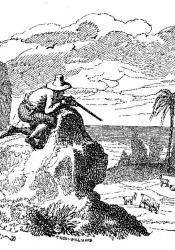Sport Hunting
Throughout time, whether it be for survival or not, humankind has taken part in the sport of hunting. What one may find interesting is the cultural significance that this act held in terms of the Victorian Era. It was quite popular during this time, and many had strong feelings of excitement regarding “the season,” or the time in which one was allowed to hunt (“Victorian Pastimes & Recreations: Hunting in Britain”). There were certainly many motivations for those to participate in this activity; many took part in hunting to brag of their kills while others did so because they loved the atmosphere it harbored (“Victorian Pastimes & Recreations: Hunting in Britain”). In most parts of Europe, however, only the upper class were recognized as “hunters,” whereas the population of the lower class were called “poachers;” both groups were taking part in the same act, ultimately (“Victorian Pastimes & Recreations: Hunting in Britain”). Furthermore, even royalty participated in such an activity, and even Queen Victoria, herself, wrote of her own excursions in Scotland (“Victorian Pastimes & Recreations: Hunting in Britain”). The major animals of interest for this group of enthusiasts were deer, rabbits, and even boar ("Victorian Pastimes & Recreations: Hunting in Britain").
In terms of Jane Austen’s Sense and Sensibility, my understanding of the text is deepened through my research of this topic. I now understand the notions taken by that of the female demographic regarding values they want in a suitor. This also may explain why Willoughby is considered attractive by Marianne upon their first meeting; he upholds a notion valued by the society of the time (Austen).
Works Cited
Austen, Jane. Sense and Sensibility. 1811.
“Victorian Pastimes & Recreations: Hunting in Britain.” Victorian Voices,
https://www.victorianvoices.net/topics/recreation/hunting.shtml.
Image Scanned by: Philip V. Allingham (https://victorianweb.org/art/illustration/cruikshank/crusoe/7.html)

